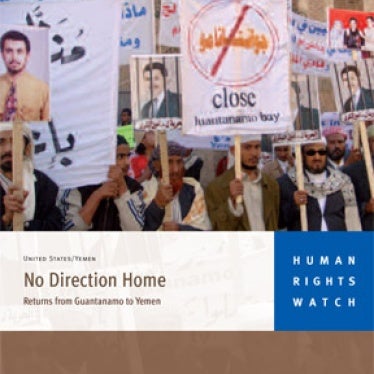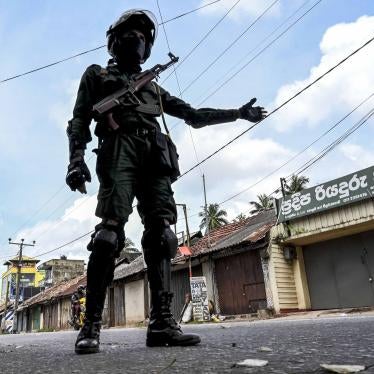(New York) - A US federal court ruling that three detainees in US custody at the Bagram Airbase in Afghanistan who were arrested abroad be given the same legal protections as Guantanamo detainees expands the role of federal courts in protecting detainee rights outside the US, Human Rights Watch said today.
Today's ruling, which held that the three petitioners have the right to challenge their detention in US federal court, applied the framework set out in last year's US Supreme Court ruling on Guantanamo, Boumediene v. Bush. While the government had argued that the Boumediene decision did not apply to any prisoners in US custody in Afghanistan, the federal court found that these cases were essentially the same.
"These three detainees are in the same situation as the prisoners at Guantanamo, but for the fact that the US government chose to keep them at Bagram," said Joanne Mariner, terrorism and counterterrorism director at Human Rights Watch. "Today's ruling upholds the crucial role of the federal courts in protecting detainees' basic rights."
The ruling has no bearing on the legal status of the vast majority of the 600 prisoners currently held at Bagram who are Afghan nationals.
Human Rights Watch has interviewed close relatives of two of the detainees at issue in the case, Amin al-Bakri and Haji Wazir.
The father of Amin al-Bakri told Human Rights Watch that he had to hire a private detective to learn that his son, a gem trader and father of three, was picked up in late 2002 during a business trip to Thailand. He said he did not receive a letter from his son for a full year after the arrest.
The court reserved judgment in a fourth case - that of Haji Wazir, an elderly Afghan businessman who was detained outside of Afghanistan - on the grounds that he was an Afghan citizen. Wazir's brother told Human Rights Watch that Wazir disappeared in Dubai in September 2002. "One day he went to the mosque and didn't come home," Wazir's brother said. "We didn't know who had kidnapped him. He just disappeared on the way home."
In its legal arguments, the government relied heavily on the claim that, unlike Guantanamo, Bagram is located in a traditional theater of war. Human Rights Watch said that while Afghanistan was indeed a war zone, the petitioners could not remotely be considered either combatants or persons picked up in an armed conflict situation. They were not captured on the battlefield in Afghanistan; rather, they were flown to Afghanistan from places like Thailand and Dubai.
Human Rights Watch said that today's ruling left unresolved the lack of basic due-process rights for the vast majority of detainees held by the US at Bagram, who are Afghan citizens. Prisoners held at Bagram, which is being expanded to hold up to 1,000 detainees, have no right to a lawyer, no access to the courts, and barely any right to challenge the grounds for their detention.
"Given the scant information about the 600 detainees at Bagram, it is not known how many of them have now been held there for years without charge," Mariner said. "But it should be obvious that these men too deserve a fair legal process."







